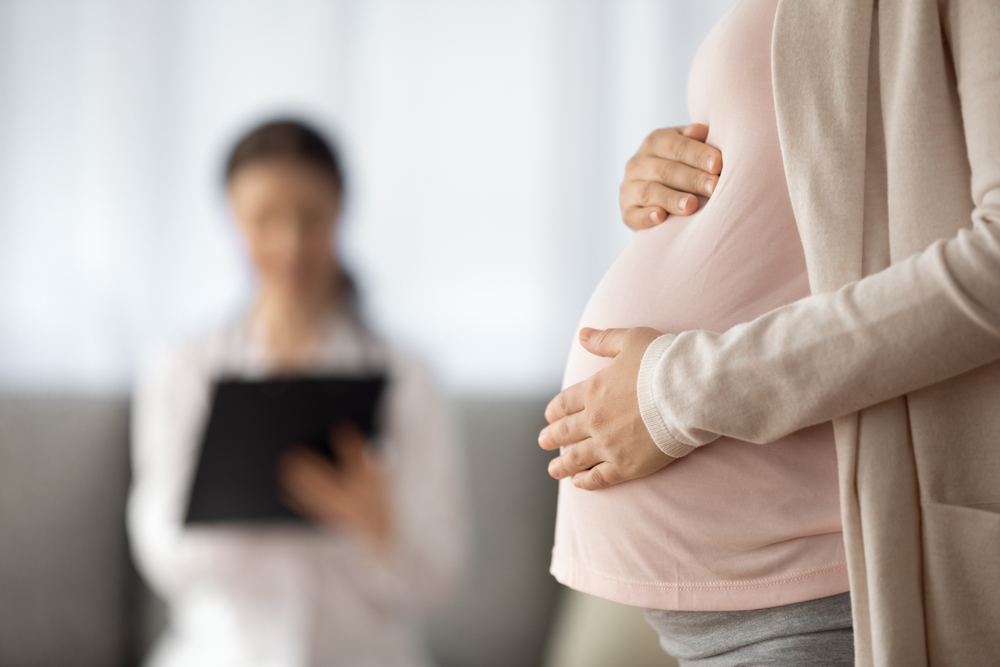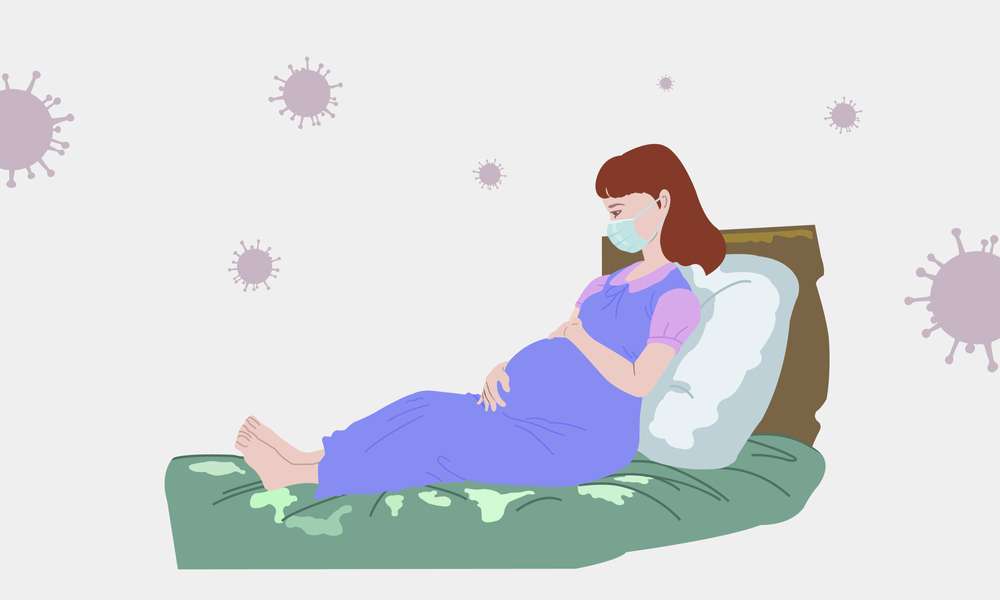Cramps During Pregnancy
Most expectant mothers will feel some minor aches and pains during their pregnancy. Your body is changing every day, after all. And let’s get real: raising a growing child is not an easy task!
While cramping is sometimes a normal part of pregnancy, it can also be a serious cause for concern. Knowing a little bit more will help you identify the exact source of your discomfort.
What is Cramps During pregnancy?
Cramps during pregnancy is characterized by pelvic pain, particularly in the lower abdomen or back. This could feel like menstrual cramps, or it could feel like something pulling on one or both sides of the abdomen.
An expert in maternal-fetal medicine, claims that cramping is a “very common complaint” during pregnancy. She does point out that abdominal pain is also “notoriously vague and subjective,” so determining its precise cause and, consequently, whether it warrants concern, can be difficult.
Cramps during pregnancy is a fairly general complaint and so nonspecific.”Context is crucial when it comes to cramping, in my opinion. Pregnancy is typically thought of in terms of the first, second, and third trimesters, and its meaning varies depending on the context of a woman’s stage of pregnancy.
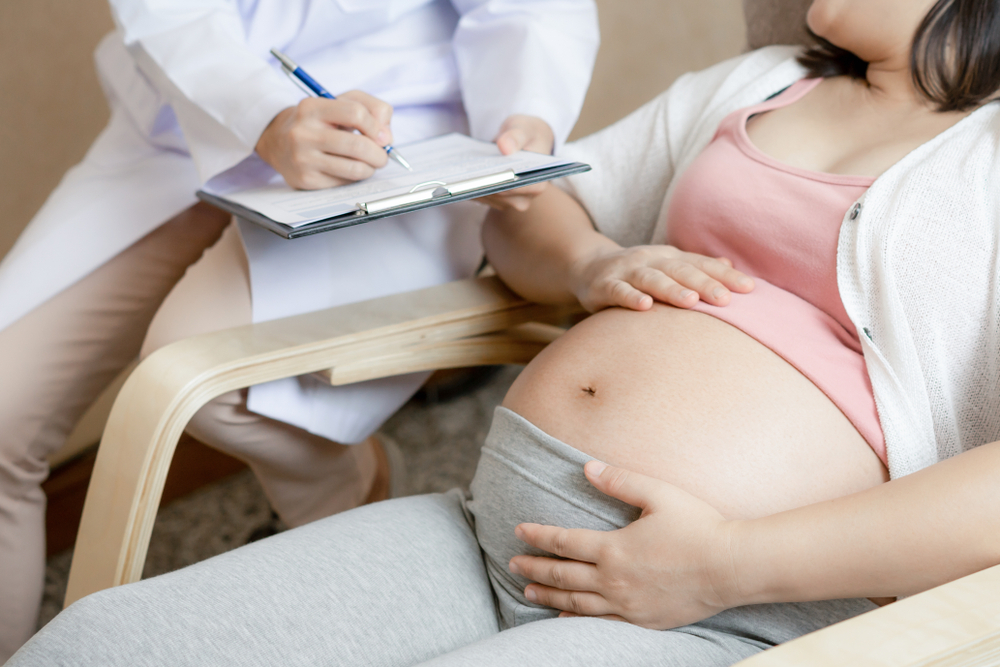
Is Cramps during pregnancy normal?
Pregnancy-related mild cramps that occur occasionally are usually not a cause for concern, but you should still report them to your doctor. However, if your stomach pain or cramps are severe, persistent, or occur in addition to other symptoms, they might indicate a problem.
For instance, mild cramps during pregnancy and bleeding are typical in the early stages of pregnancy. Usually, the pregnancy progresses normally after the symptoms subside. On occasion, however, early pain or cramping may indicate an infection, an ectopic pregnancy, or a miscarriage.
Moreover, pain in the round ligament or Braxton-Hicks contractions may be the cause of cramps later in pregnancy. Alternatively, they could indicate an issue like premature labor or placental abruption.
Make an appointment with your doctor if:
- Even after resting for several minutes, your cramps don’t go away
- The pain or cramping is excruciating.
- You also have other symptoms, like lightheadedness or a fever.
- Your abdomen is unusually sensitive to touch, especially when pressure is released, or you have upper abdominal pain. This could be an indication of a serious abdominal infection.
Why do I have Cramps during Pregnancy?
Your body is working very hard to get ready for your baby during the first and second trimesters. Your uterus’s muscles will soon start to flex and grow. Your stomach may start to pull on both sides as a result of this. You might even experience period-like aches in the very early stages of your pregnancy. Patellar hypertension cramps during pregnancy is a common occurrence.
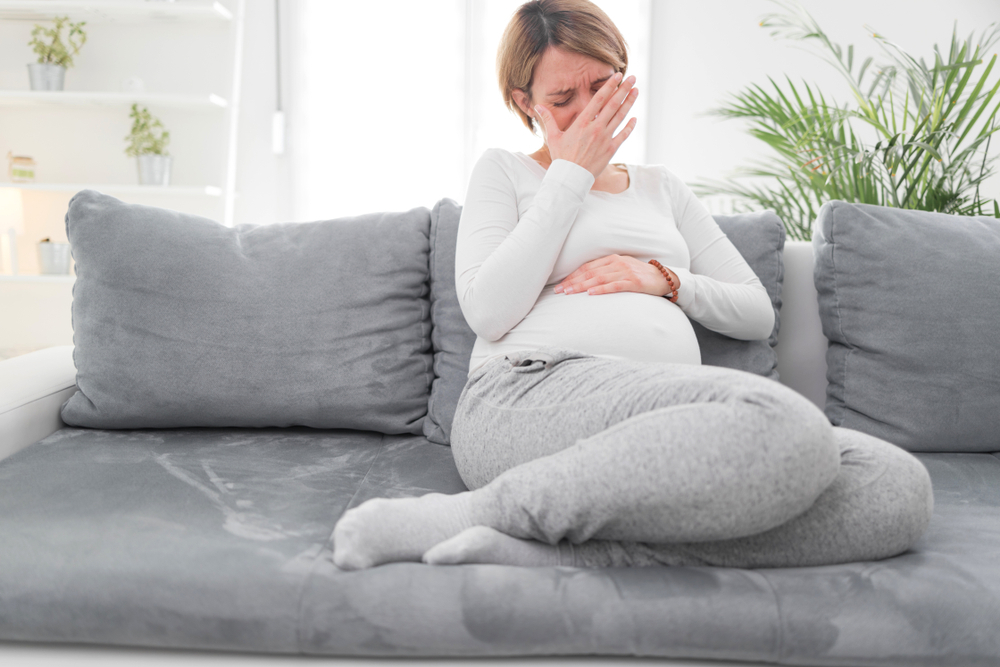
Early pregnancy adverse Outcomes
Cramps during pregnancy can be brought on by common early-pregnancy side effects like constipation. Cramping may also occur when you continue your regular exercise regimen. Your muscles may be under more stress as a result of this. When you start to cramp while working out, it’s time to stop and give yourself a much-needed break.
Implantation Cramps
You might experience mild cramps during pregnancy and bleeding 6 to 12 days after conception, when the fertilized egg implants in the uterus. This phenomenon is known as implantation bleeding, and it typically subsides within a day or two.About 15 to 25 percent of pregnant women experience implantation bleeding, which is completely normal.In addition to having fewer cramps during pregnancy and bleeding than you would during a typical period, you could also:
- Nausea
- Breast tenderness
- Lower back pain
- Mood swings
- Headaches
Gas or Bloating
Because of hormones that slow down digestion and the pressure of your growing uterus on your stomach and intestines, you are far more likely to experience gas pain and bloating during pregnancy. However, intestinal discomfort caused by gas and bloating is more common than cramps during pregnancy or pain, so if you are experiencing severe discomfort, contact your healthcare provider.
Constipation
Constipation can result from growing uterus pressure on your rectum and pregnancy hormones that slow down your digestion. Dehydration can also do this. (Your urine should be clear or pale yellow if you’re drinking enough.)If you have severe constipation or any of the following conditions, call your healthcare provider:
- Pain
- Bleeding
- Discharge
Infection
Cramps during pregnancy can also result from urinary tract infections (UTIs) or yeast infections. According to a BMJ study, up to 6% of expectant mothers will experience a urinary tract infection (UTI) while pregnant. Kidney infections can develop rapidly from UTIs. This raises the possibility of premature labor for you. Every time you see your doctor, they should test your urine to make sure there are no indications of an infection.
Sex
- Constriction can also result from sexual activity. According to the nonprofit Healthy Women, many women who are fortunate enough to have a healthy, normal pregnancy can continue to have sex until they give birth.
- However, you might notice that sex feels a little different when you’re pregnant. You might not find it particularly enjoyable because of your growing belly. An orgasm later in your pregnancy may result in mild contractions. See your doctor if you experience any of these symptoms following a sexual encounter.
Ectopic Pregnancy
- Although mild cramps are a common pregnancy side effect, you should still discuss your discomfort with your doctor. In the event that bleeding or spotting appears concurrently with your cramps, this may indicate an ectopic pregnancy or miscarriage.
- Your ovary releases an egg into the fallopian tube during a typical pregnancy. The fertilizing sperm travels into your uterus and adheres to the lining of the egg. Over the following nine months, the egg keeps growing.
- According to American Family Physician, 1–2% of pregnancies end in ectopic pregnancy. The fertilized egg remains in your fallopian tube rather than moving into your uterus. Rarely, the fertilized egg may adhere to your cervix, abdomen, or one of your ovaries.
Miscarriage
The loss of a pregnancy during the first 20 weeks is called a miscarriage. Early pregnancy loss symptoms could include:
- Vaginal spotting or bleeding
- Stomach Aches. Either a dull or sharp, sporadic or ongoing pain is possible. Your cramps may feel similar to those you get during your menstrual cycle. It could also feel more like pelvic pressure or lower back pain.
- Tissue or clot-like material expelled from the vagina
- If you suspect a miscarriage, give your healthcare provider a call. You should see a doctor right away if you are experiencing severe pain or bleeding profusely.
Preeclampsia
- A serious concern is also a condition known as preeclampsia. Preeclampsia may develop at any point following the 20th week of pregnancy. Preeclampsia affects at least 5 to 8 percent of pregnant women, according to the Preeclampsia Foundation.
- Upper-right stomach pain is a possible symptom of preeclampsia. This may make you more susceptible to placental abruption, a condition in which the placenta separates from the uterine wall prior to delivery.
- Until your baby is delivered, your doctor will take your blood pressure and urine at each visit. Urine protein levels may indicate preeclampsia.
Second and Third Trimester and Cramps During Pregnancy
- Your pelvic pressure will probably start to increase as you approach the third trimester. Given how quickly your baby is growing right now, this is fairly common.
- The nerves that run from your vagina to your legs are compressed by your infant. Because the baby is kicking around in your belly, you might feel more pressure and cramps during pregnancy when you walk. Your discomfort may subside if you lie down on your side for a while. But if you start to experience constant, increasing cramping, call your doctor straight away.
- According to Bond, “it is never really thought of as normal for pregnancy to cramp during pregnancy the third trimester.” Bond went on to say that a soon-to-be mother should always consult her doctor as soon as possible if she is having these symptoms.
- Although each expectant mother experiences premature labor in different ways, Bond stressed that it’s crucial to report any hardness or tightness in the belly as well as any new back pain. Especially if changes in vaginal discharge coincide with your back pain.
Some of the same problems that caused the earlier cramps and abdominal pain can also cause later cramps during pregnancy and pain (like gas and bloating, constipation, and sex).
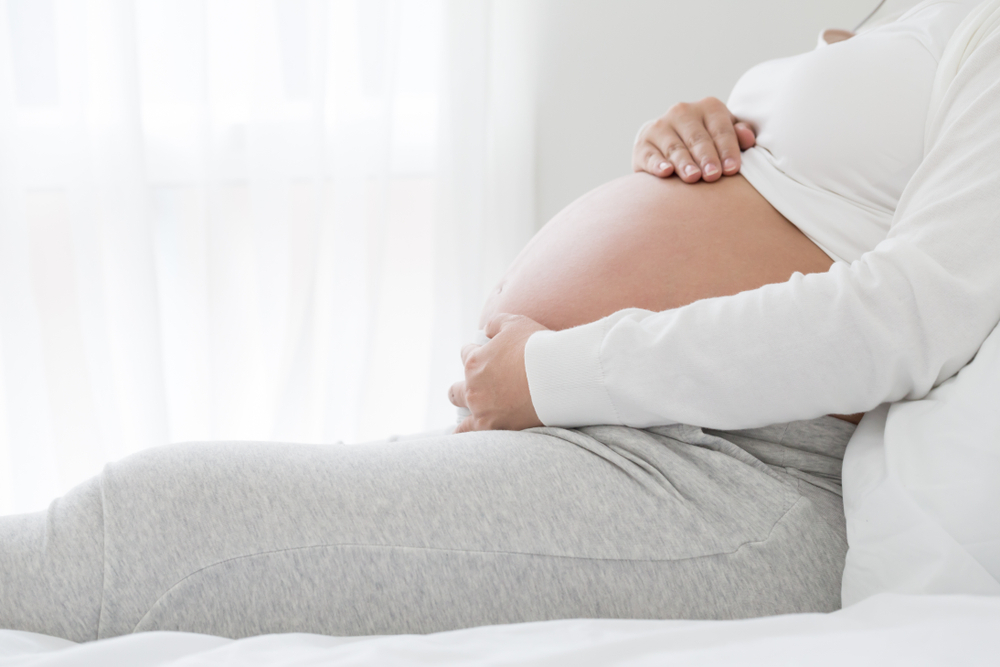
Round ligament pain
- Round ligament pain typically manifests as a short-lived, intense, stabbing pain or a dull ache that can be felt deep in your groin or on one or both sides of your lower abdomen. Although it can start as early as 10 to 12 weeks, it usually manifests itself in the second trimester when your uterus’s supporting ligaments expand and thicken to accommodate its expanding size. One side may be worse off than the other.
- Whenever you abruptly shift positions, like when you get out of bed or chair, cough, roll over in bed, or get out of the bathtub, you might experience a brief, sharp pain. Or after a particularly busy day, you might experience a dull ache. If this discomfort doesn’t go away after you’ve had some rest, give your doctor a call.
Contractions of Braxton Hicks
You might occasionally begin to experience a constriction in your uterus after midpregnancy. These Braxton Hicks contractions should be rare, erratic, and mostly painless before 37 weeks. When you’re dehydrated, when your bladder is full, at the end of the day, and/or during or after physical activity and sex, you might notice them more. (This kind of cramps during pregnancy can be an early sign of labor once you’re getting close to your due date.)
If you have lower back pain in addition to contractions, contact your healthcare provider.
- Even if they don’t hurt, you experience more than six contractions every hour.
- The frequency of the contractions is regular.
- You’re bleeding or have vaginal discharge as well.
- Do you exhibit any additional symptoms of early labor?
- early labor
- If contractions occur before 37 weeks of pregnancy and efface or dilate your cervix, you are in preterm labor, also referred to as premature labor. Before then, if you experience any of the following symptoms, give your provider a call right away:
- A sharp rise in the volume or kind of vaginal discharge (which could be blood-tinged, mucous, or watery).
Vaginal bleeding or spotting
- Cramps in the abdomen, including cramps that resemble menstrual cramps (with or without diarrhea)
- contractions that are frequent or regular (even if they don’t hurt)
- watery fluid leaking or rushing from your vagina (ruptured membranes)
- Additionally, while some lower backache and pelvic or lower abdominal pressure is normal, if you experience any of these symptoms in addition to any of the above, or if the pain or pressure is constant and unfamiliar to you, give your healthcare provider a call.
Placental Abruption
A potentially fatal condition known as placental abruption occurs when the placenta partially or totally separates from your uterus before your baby is born. Painful contractions occurring often. Your uterus may feel tender or it may contract and remain hard (like a cramp or contraction that doesn’t go away). Additionally, you might observe a decrease in your baby’s frequency of activit
How Can I feel better?
- Don’t let cramps during pregnancy make you depressed. There are a number of easy things you can do to feel better. Try reducing your physical activity and stay away from positions that can cause cramps. Taking a warm bath every night before going to bed and finding quiet, comfortable places to rest during the day should also help your belly feel better.
- According to Bond, wearing a maternity belly band may also provide some relief from cramps during pregnancy. She suggested covering the belly with a straightforward Velcro elastic belt. Verify that it is both adjustable and not overly constrictive.
Conclusion
Understanding the different types of cramps during pregnancy, knowing when to seek medical attention, and putting effective at-home management strategies into practice are all important parts of managing cramps during pregnancy. Expectant mothers can approach their pregnancy journey with confidence and peace of mind if they remain proactive and knowledgeable. Always seek the advice of a healthcare provider for specific recommendations based on your situation.

